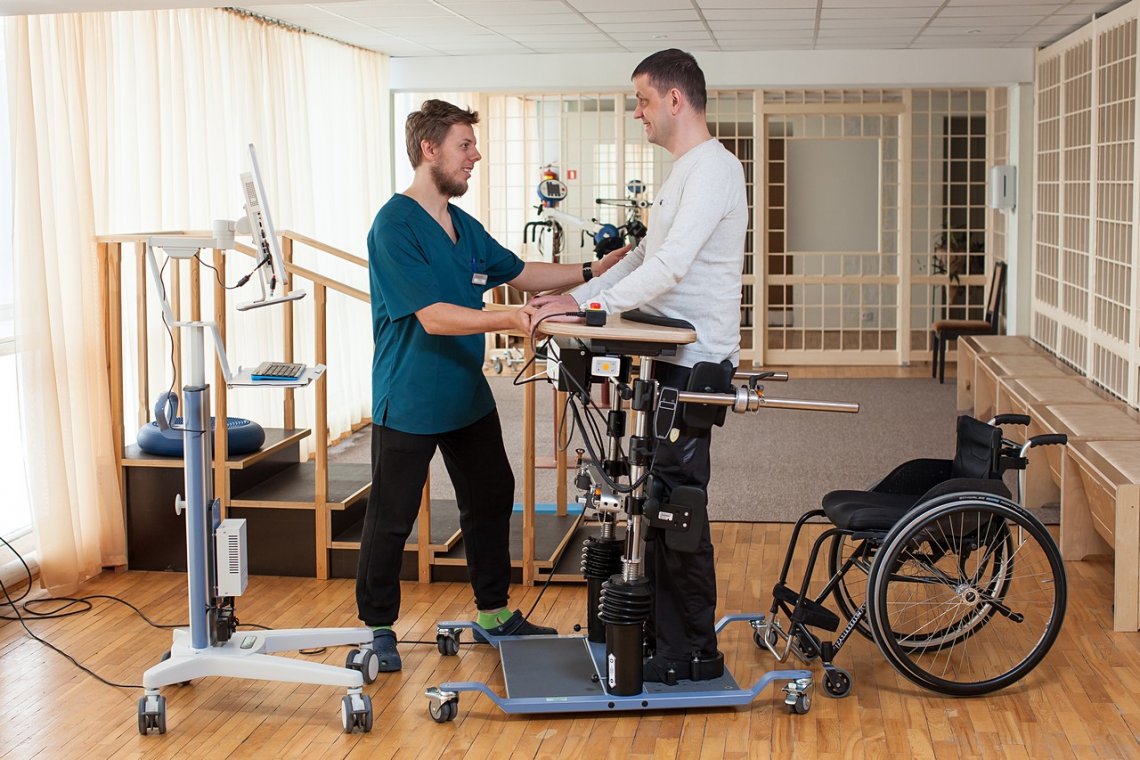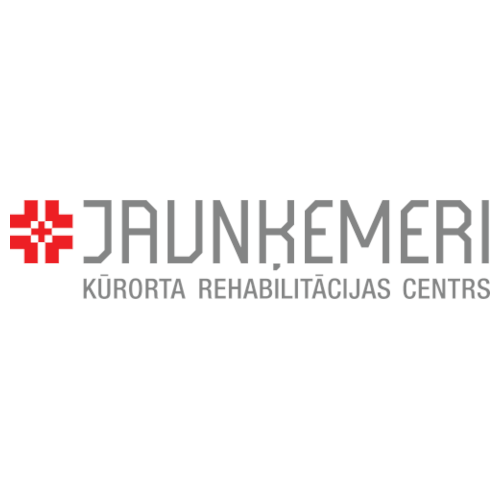Neurorehabilitation

THE PROGRAMME IS INTENDED FOR PATIENTS:
- After stroke
- After brain or spinal cord blood flow disorders
- After brain surgery
- After head injury
- After spinal cord injury
- With Parkinson’s disease, with peripheral nervous system disorders
- After neurological infections
- With demyelinating diseases
- With polyneuropathy, etc.
GOAL:
- To preserve/improve their level of independence in terms of self-care and leisure and productive activities
- To improve patient’s health-related quality of life
- To prevent secondary complications
- To reduce pain syndrome and muscular imbalance
- To help patients and their families adapt to changes in their lives to facilitate patients’ reintegration into society and their return to normal life
THE PROGRAMME IS IMPLEMENTED BY A MULTIDISCIPLINARY REHABILITATION TEAM:
- Physical and rehabilitation medicine specialist
- Neurologist
- Physiotherapist
- Occupational Therapist
- Speech Therapist
- Health Psychologist
- Nutritionist
- Music Therapist
- Hydrotherapists and Physical Therapists
- Nurses
- Social worker
Every rehabilitation plan is personalised depending on patient’s functional status.
The programme includes
Personal physiotherapy sessions
Nordic walking lesson and Nordic walking sessions
Speech therapist consultation and sessions
Health psychologist consultation
Group session with psychologist
Group session with nutritionist
Sulphurous mineral water baths (except patients after stroke)
Bromine water baths (except patients after stroke)
Mud treatments (except patient after stroke and patients with demyelinating diseases)
Additional paid services
Aquatic physiotherapy session with aqua bike
Whirlpool baths
Vertical traction bath
The programme is intended for people who have experienced neurological problems causing movement, speech or other disorders.
Personalised rehabilitation plans are created by doctors based on each patient’s state of health and contraindications. We are all for helping people get better and all against letting them get worse! That is why we ask you to trust our experienced medical team who know which treatment to use in each particular case.
Every patient’s case is special and that is why treatments in the medical rehabilitation programmes may vary for each patient.
The minimum duration of medical rehabilitation is 7 days.
- When you begin your medical rehabilitation course, you must have an identity document with you (passport or ID card).
- We offer additional paid services, such as laboratory tests, diagnostic examinations, consultations with specialists and additional treatments depending on indications.
- For salt therapy, you need to book a salt room visit (3,80 euro) from our Kiosk or Fito Bar.
Before coming to the Rehabilitation Centre, please carefully read:
MEDICAL REHABILITATION OR HEALTH IMPROVEMENT SERVICE PROVISION AGREEMENT
INTERNAL REGULATIONS
REFUNDS FOR UNUSED SERVICES
For additional information or to book a service, click here
You should have with you:
- Identity document (passport or ID card)
- Recent examination reports, tests results, hospital discharge summary and other documents that you can provide to our doctors for a more successful rehabilitation process
- Referral from your GP or another specialist
- If you want to receive medical rehabilitation services for an occupational disease and plan to get reimbursement from the State Social Insurance Agency, you must have a decision from a medical commission on the diagnosis of the occupational disease
- Swimwear
- Pool slippers
- Swim cap (or a shower cap)
- Comfortable clothes and footwear for Nordic walking
- Personal hygiene products
- Hairdryer (if necessary)
If a patient needs a functional room and care, please make sure to have:
- Identity document (passport or ID card)
- Recent examination reports, tests results, hospital discharge summary and other documents that you can provide to our doctors for a more successful rehabilitation process
- Referral from a GP or other specialist is preferable
- Comfortable clothes (gym wear with pants) for exercises with a specialist
- Comfortable, closed footwear providing good foot support and comfort during exercises
- All medicines that have been prescribed to you and that you should be taking
- Necessary personal hygiene products, including, where necessary, diapers, wet wipes and care products for the patient



